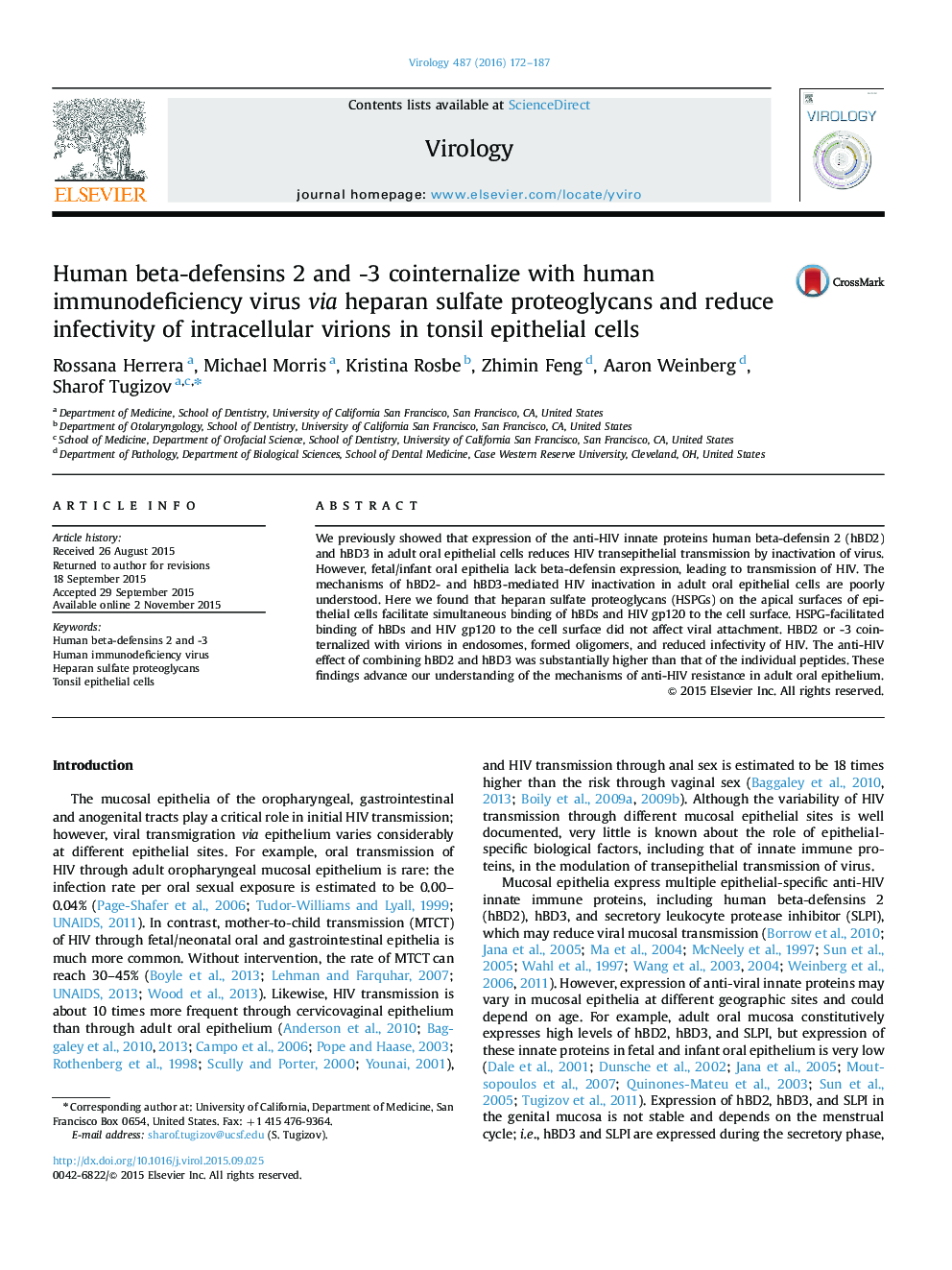| کد مقاله | کد نشریه | سال انتشار | مقاله انگلیسی | نسخه تمام متن |
|---|---|---|---|---|
| 6138829 | 1594230 | 2016 | 16 صفحه PDF | دانلود رایگان |
عنوان انگلیسی مقاله ISI
Human beta-defensins 2 and -3 cointernalize with human immunodeficiency virus via heparan sulfate proteoglycans and reduce infectivity of intracellular virions in tonsil epithelial cells
دانلود مقاله + سفارش ترجمه
دانلود مقاله ISI انگلیسی
رایگان برای ایرانیان
کلمات کلیدی
موضوعات مرتبط
علوم زیستی و بیوفناوری
ایمنی شناسی و میکروب شناسی
ویروس شناسی
پیش نمایش صفحه اول مقاله

چکیده انگلیسی
We previously showed that expression of the anti-HIV innate proteins human beta-defensin 2 (hBD2) and hBD3 in adult oral epithelial cells reduces HIV transepithelial transmission by inactivation of virus. However, fetal/infant oral epithelia lack beta-defensin expression, leading to transmission of HIV. The mechanisms of hBD2- and hBD3-mediated HIV inactivation in adult oral epithelial cells are poorly understood. Here we found that heparan sulfate proteoglycans (HSPGs) on the apical surfaces of epithelial cells facilitate simultaneous binding of hBDs and HIV gp120 to the cell surface. HSPG-facilitated binding of hBDs and HIV gp120 to the cell surface did not affect viral attachment. HBD2 or -3 cointernalized with virions in endosomes, formed oligomers, and reduced infectivity of HIV. The anti-HIV effect of combining hBD2 and hBD3 was substantially higher than that of the individual peptides. These findings advance our understanding of the mechanisms of anti-HIV resistance in adult oral epithelium.
ناشر
Database: Elsevier - ScienceDirect (ساینس دایرکت)
Journal: Virology - Volume 487, January 2016, Pages 172-187
Journal: Virology - Volume 487, January 2016, Pages 172-187
نویسندگان
Rossana Herrera, Michael Morris, Kristina Rosbe, Zhimin Feng, Aaron Weinberg, Sharof Tugizov,